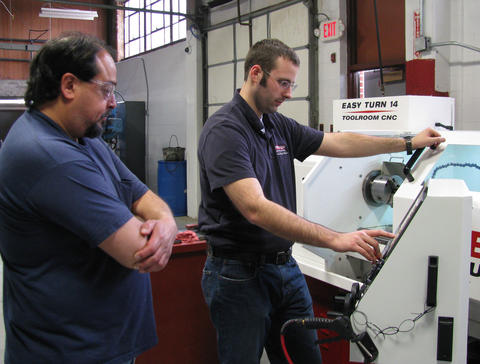Machining & Manufacturing Technology
This program is available to current Kansas high school students tuition free.

The Machining & Manufacturing Technology is designed to give students the necessary skills for entry level employment in the machining industry. Manufacturing provides many high skilled jobs such as Machinist, C.N.C. Machinist, Tool and Die makers. These positions require set up and operation of several machine tools to manufacture the specific product. Drill press, milling machines, lathes and grinders are the core machines used in this industry. Computer Numerical Controlled (C.N.C.) machines are the standard in the industry.

Program Contact
Eric Britts
Instructor
[email protected]
620-252-7521
Machining & Manufacturing Technology Facebook
Fast Facts
Salary
National average range is $28,000 to $47,000 per year
Jobs
-Machinist
-CNC Machinist
-Tool and Die Maker
9 Month Program



